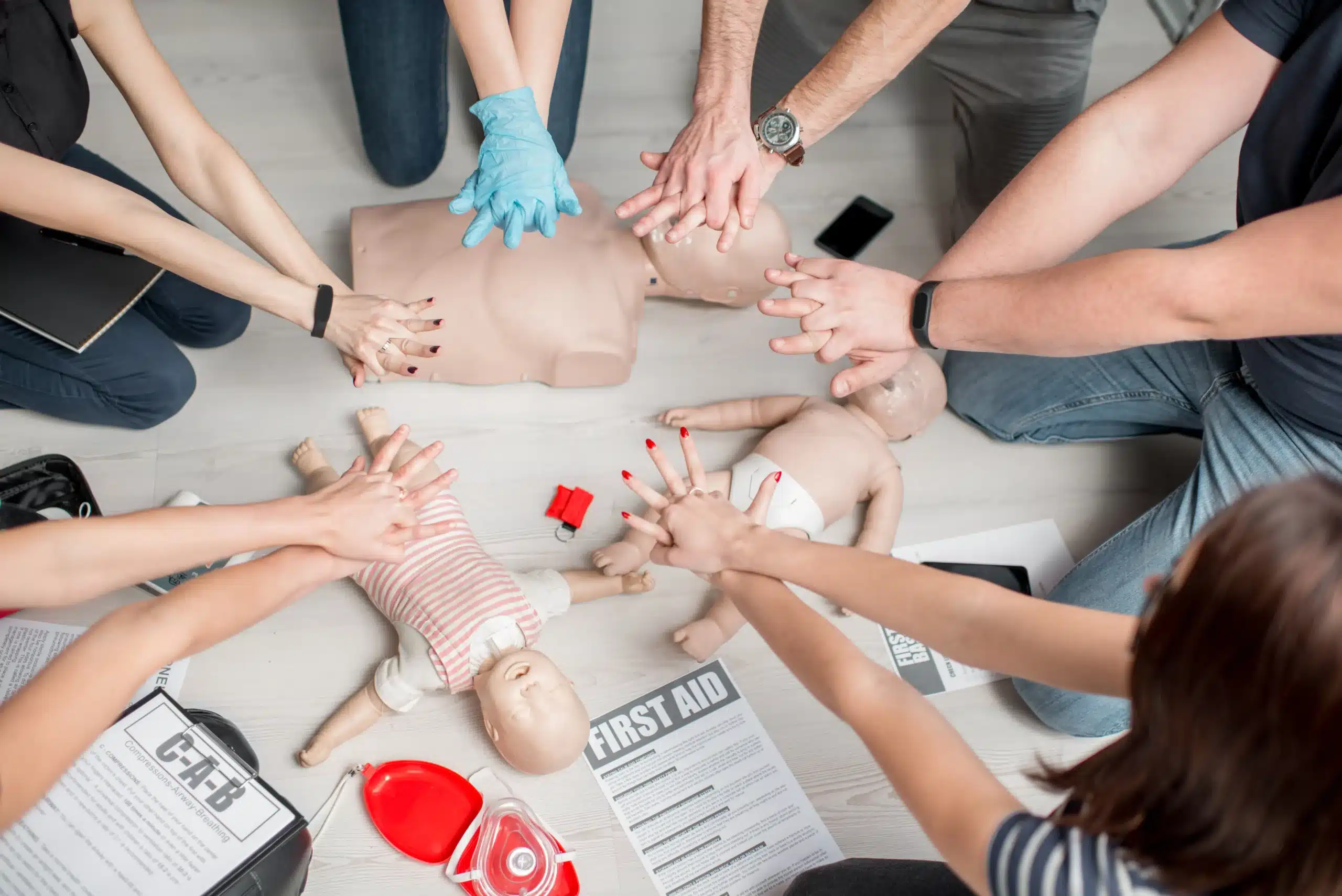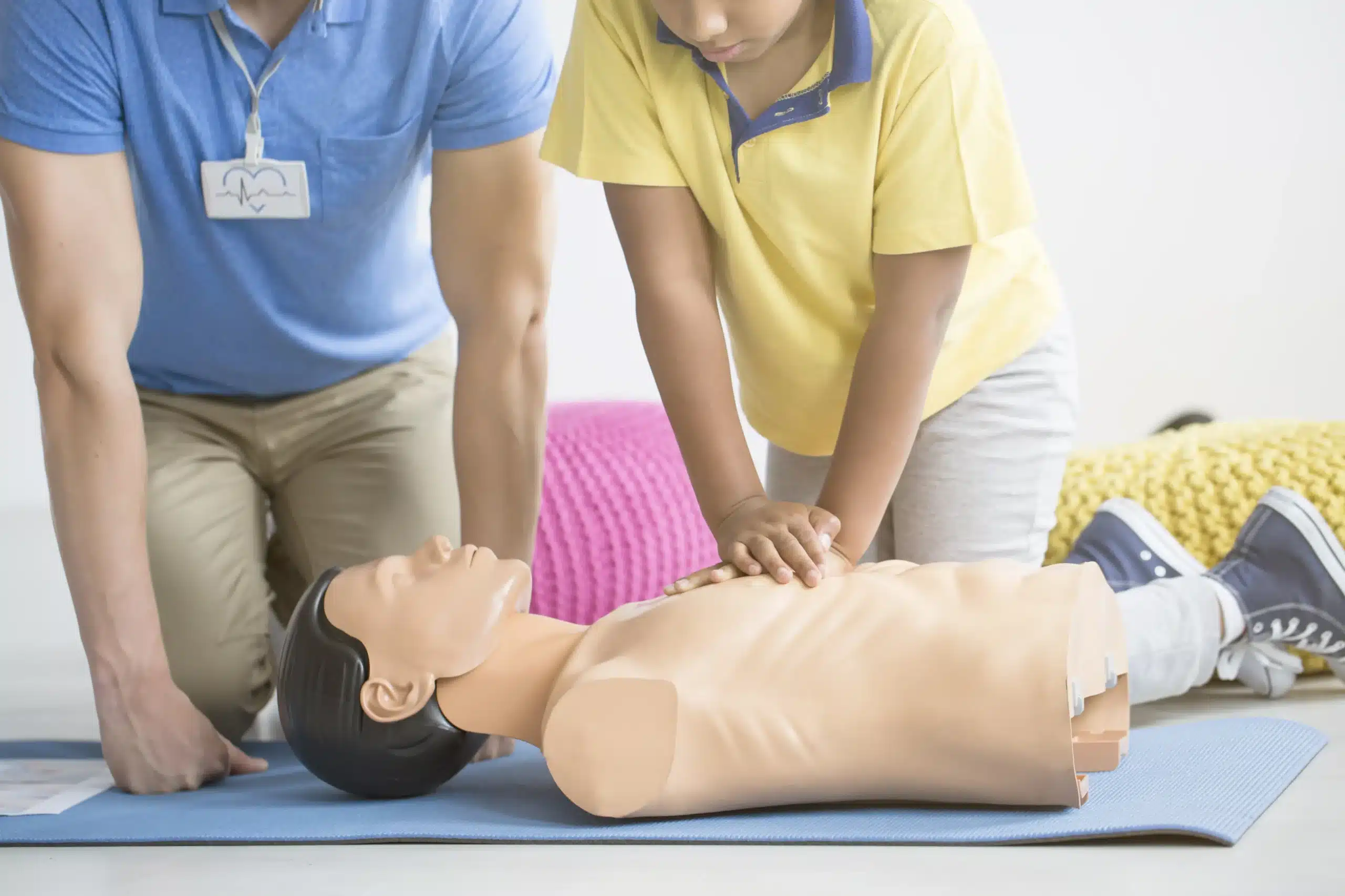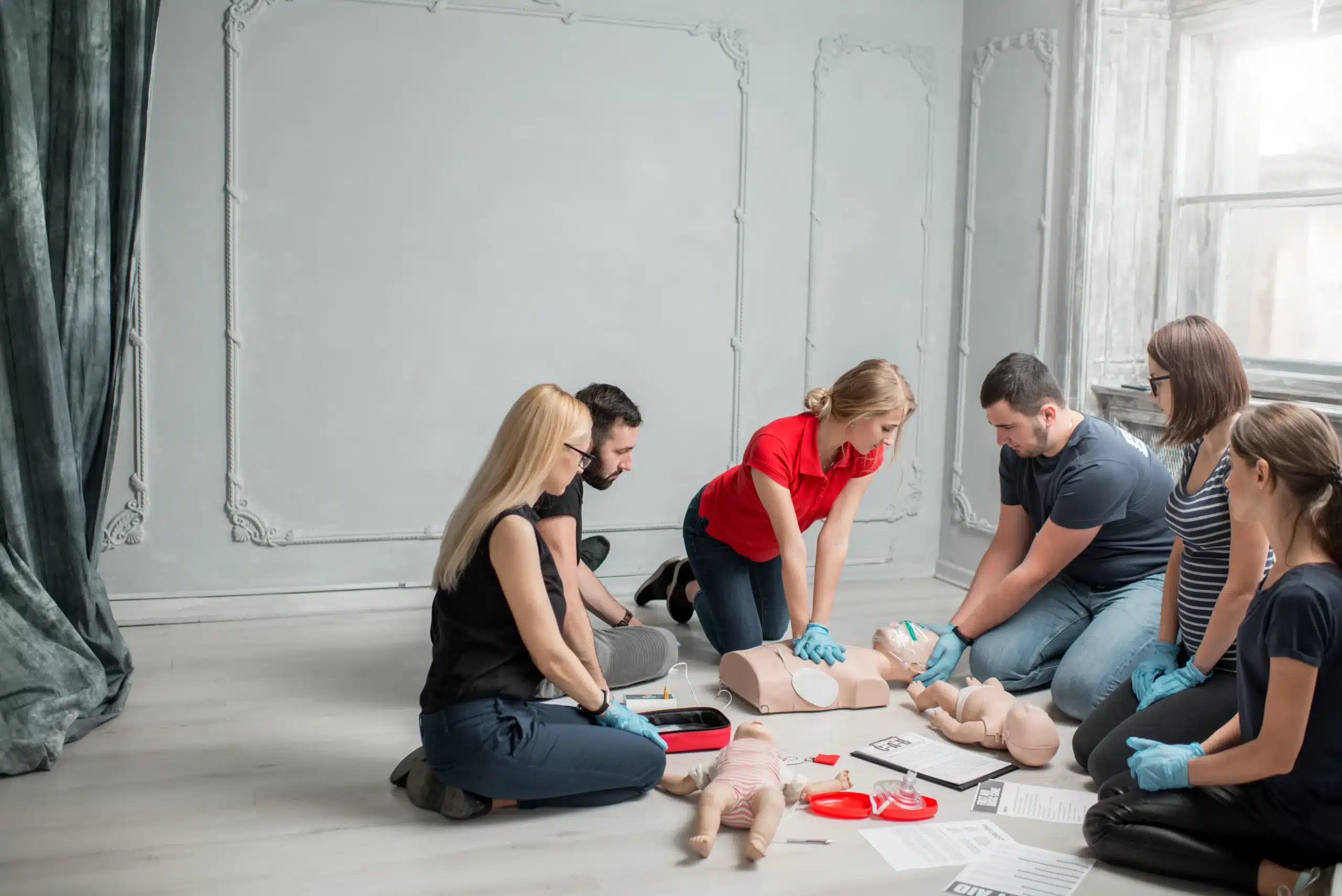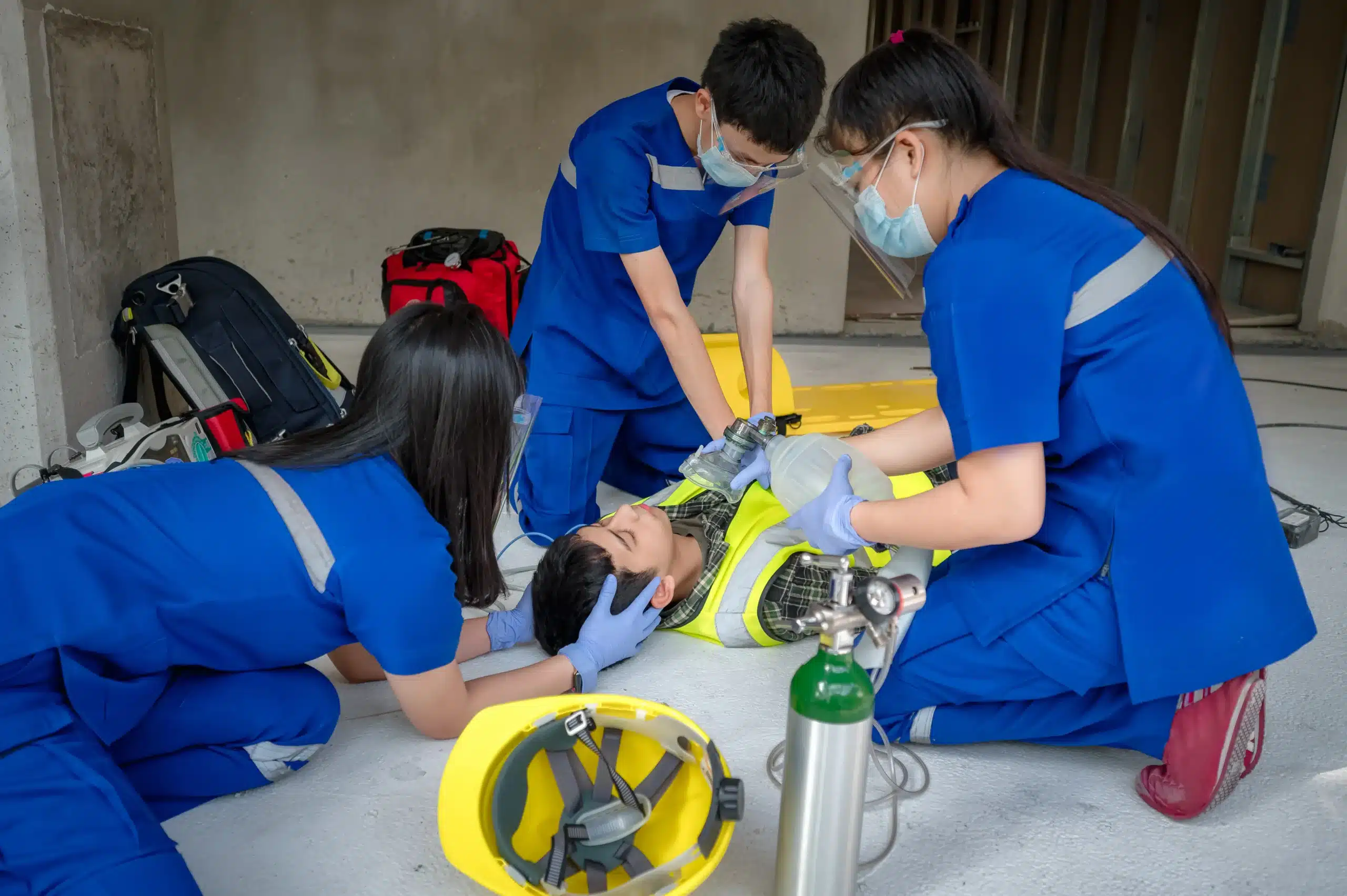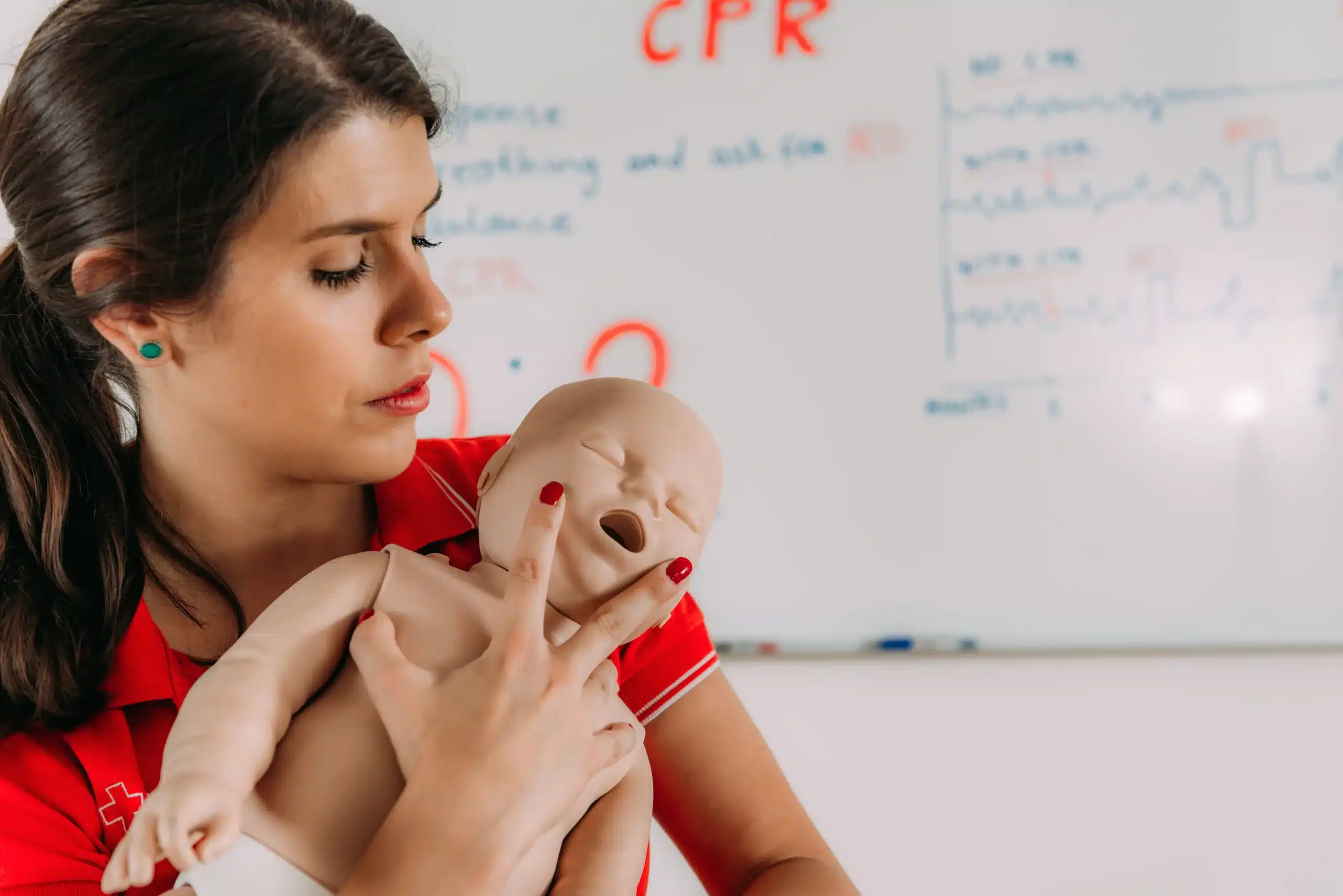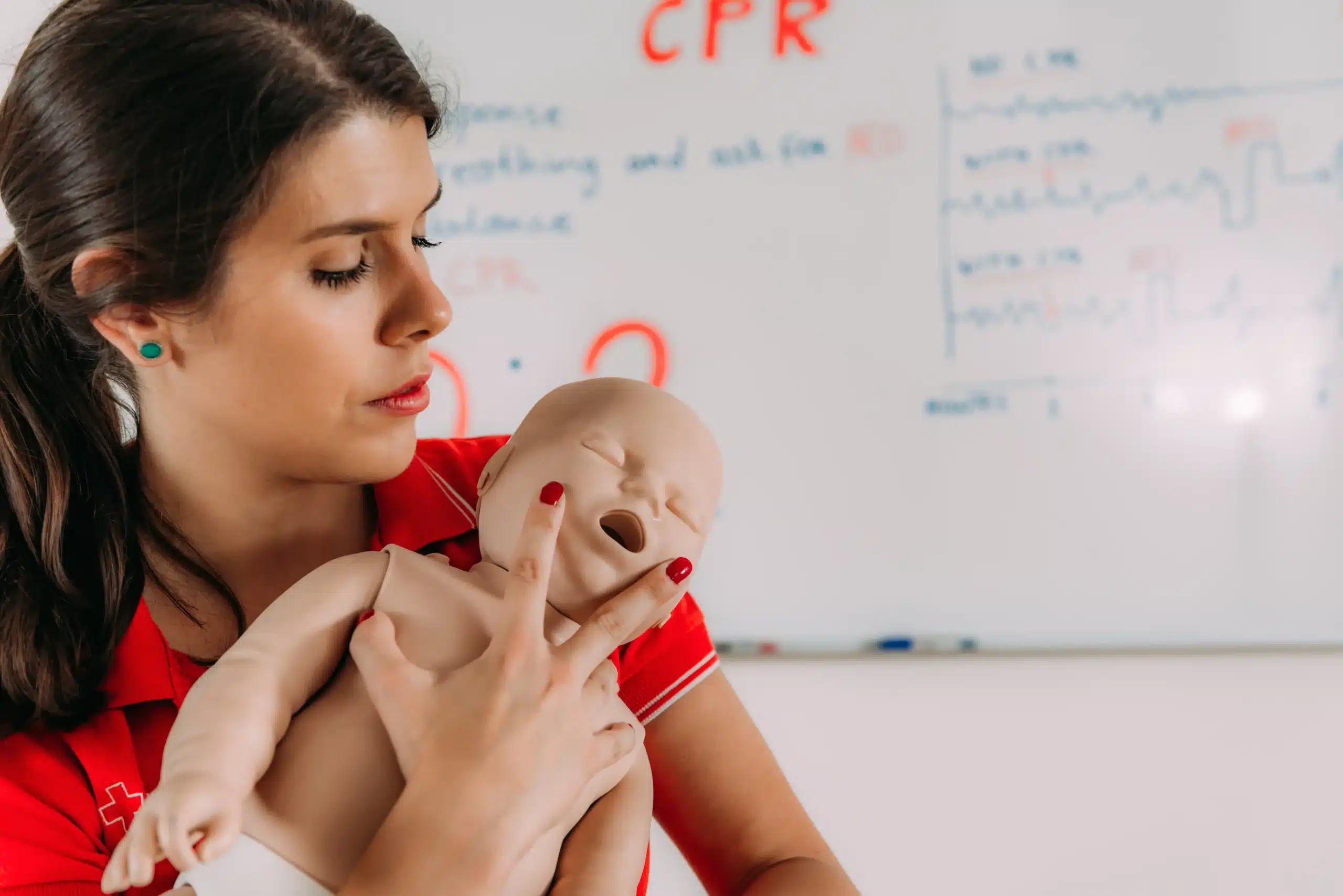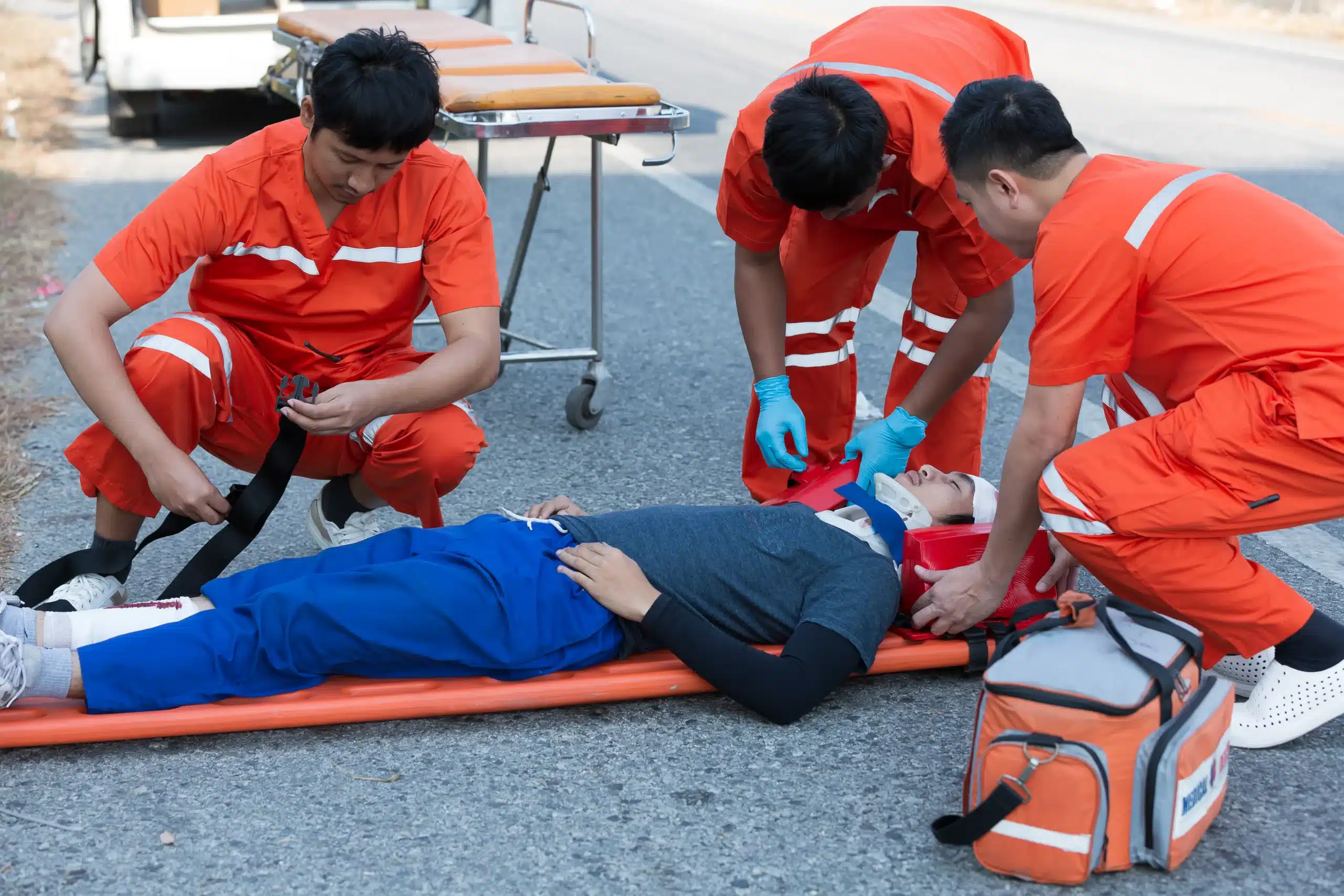Emergencies can happen anytime, anywhere. Being equipped with life-saving skills like CPR can make a world of difference. If you’re in Rancho Cordova and considering CPR certification, this guide is for you. We’ll explore the ins and outs of CPR certification in Rancho Cordova, including the various types of courses, the certification process, and how to choose the right training provider. We’ll also discuss the importance of maintaining your skills and staying up-to-date with the latest guidelines. Whether you’re a healthcare professional, a community member, or simply want to be prepared, this guide will help you on your path to becoming CPR certified.
Key Takeaways
- CPR Certification Empowers You: Knowing CPR can make a real difference in a medical emergency. Find a course in Rancho Cordova that fits your schedule and individual needs.
- Find the Right Fit: Explore different CPR certification levels (CPR/AED/First Aid, BLS, ACLS, PALS) and training providers in Rancho Cordova. Consider cost, reviews, and convenience when making your choice.
- Stay Sharp: Regular practice and recertification are essential for maintaining your CPR skills and staying up-to-date with the latest guidelines. This ensures you’re always prepared to help in a crisis.
What is CPR Certification in Rancho Cordova?
CPR certification in Rancho Cordova gives you the skills to respond to cardiac arrest and other medical emergencies. The training covers how to recognize a cardiac event, perform chest compressions and rescue breaths, and use an automated external defibrillator (AED). These certifications are essential for healthcare professionals and valuable for anyone in the community. Organizations in Rancho Cordova offer CPR training, making it accessible to everyone. Whether you’re a medical student, teacher, parent, or simply want to be prepared, CPR certification empowers you to make a difference. Learn more about our CPR and first-aid certification courses.
Why CPR Training Matters
CPR can dramatically improve survival rates after cardiac arrest. The American Red Cross emphasizes CPR training because of the sheer number of cardiac arrests each year. CPR can double or triple a person’s chance of survival. Immediate bystander CPR is often the critical link between collapse and survival until professional help arrives. Learning CPR means you could save a life. Consider our EMSA Child Care Health & Safety course for specialized training.
Essential CPR Skills
CPR training combines knowledge and practical skills. You’ll learn to assess the scene, check for responsiveness and breathing, perform chest compressions, and deliver rescue breaths. Training also covers AED use. In-person classes usually include a skills test where you demonstrate these techniques on a manikin with a certified instructor. This hands-on practice builds confidence and prepares you to act in a real emergency. Check out our low price guarantee for affordable training. We also offer American Heart Association BLS training for healthcare providers.
CPR Certification Courses: What’s Available?
Choosing the right CPR certification course depends on your individual needs and career goals. Whether you’re a healthcare provider, work in childcare, or simply want to be prepared, there’s a course for you. Let’s explore some common CPR certifications available in Rancho Cordova.
Adult, Child, and Infant CPR
This foundational course equips you with the skills to respond to cardiac emergencies in adults, children, and infants. You’ll learn chest compressions, rescue breaths, and how to use an automated external defibrillator (AED). Many providers, like Pro CPR, offer combination courses that include CPR/AED and First Aid, allowing you to address a wider range of emergencies. These courses are great for everyone—from parents and caregivers to those meeting job requirements. Some providers even offer CPR instruction in Spanish.
BLS for Healthcare Providers
Healthcare professionals, including doctors, nurses, and EMTs, need more advanced training. The Basic Life Support (BLS) certification covers essential life-saving techniques in professional healthcare settings. This course goes deeper into airway management, team dynamics during resuscitation, and using advanced equipment. NorCal Emergency Medical Training is an authorized training center in the Sacramento area for BLS certification.
ACLS
Advanced Cardiovascular Life Support (ACLS) certification builds upon BLS, focusing on complex cardiovascular emergencies. This course is essential for healthcare professionals in critical care, emergency rooms, and intensive care units. Carmichael CPR Classes offers ACLS certification, along with other American Heart Association courses.
PALS
Pediatric Advanced Life Support (PALS) certification focuses on children’s needs. This course teaches specialized techniques for managing pediatric emergencies, including respiratory distress, cardiac arrest, and shock. Like ACLS, PALS is usually required for professionals in pediatric intensive care units, emergency departments, and other specialized roles. You can find PALS training through providers like Carmichael CPR Classes.
First Aid & AED Training
First Aid and AED training are valuable additions to your skillset. First Aid teaches you how to handle medical emergencies, from cuts and burns to allergic reactions and broken bones. AED training covers the safe and effective use of an AED to help restore a normal heart rhythm during sudden cardiac arrest. Many providers, including Pro CPR, offer combined First Aid and AED training, or you can take these courses separately.
Top CPR Certification Providers in Rancho Cordova
Finding the right CPR certification course can feel overwhelming. To simplify your search, I’ve compiled a list of reputable providers in Rancho Cordova, highlighting what makes each one unique.
Carmichael CPR Classes (Safety Training Seminars)
Carmichael CPR Classes, offered by Safety Training Seminars, provides a comprehensive range of American Heart Association (AHA) courses, including BLS, ACLS, PALS, CPR, and First Aid. They’re known for excellent customer service and offer daily classes in over 60 cities, making scheduling a breeze. This commitment to flexibility and customer satisfaction makes them a solid option for those seeking certification in the Carmichael, Rancho Cordova, and Fair Oaks areas. They also offer a low price guarantee. Learn more about their CPR and First Aid certification courses. They also offer training that meets the requirements for EMSA Child Care Health & Safety.
Pro CPR
Pro CPR offers various courses in CPR, BLS, AED, and First Aid training in Rancho Cordova. They serve both healthcare professionals and the general public, ensuring accessibility for all. Pro CPR also extends its services to nearby areas like Modesto and Stockton, expanding their reach for those seeking CPR certification.
NorCal Emergency Medical Training
NorCal Emergency Medical Training is an authorized American Heart Association (AHA) training center in the Greater Sacramento area. They offer various CPR and medical training classes in both Rancho Cordova and Roseville. Their status as an authorized training center ensures high-quality instruction and certification.
American Red Cross
The American Red Cross is a well-known provider of CPR/AED training and certification across California. They offer flexible learning options, including in-person, online, and blended learning formats. This variety allows individuals to choose the format that best suits their learning style and schedule when pursuing CPR and First Aid certification.
Revival CPR
Revival CPR focuses on AHA BLS (CPR) classes in the Greater Sacramento area. A key feature of their program is same-day certification, enabling participants to receive their AHA BLS certification card immediately after completing their training. This is a convenient option for those who need certification quickly.
Get CPR Certified: The Process
So, you’re ready to get CPR certified? Great! This section breaks down the process, from course requirements to different learning options. We’ll cover everything you need to know to get started.
Course Requirements & Skills Assessment
CPR certification involves learning essential life-saving techniques and demonstrating your practical skills. You’ll learn how to recognize the signs of a cardiac arrest, perform chest compressions, give rescue breaths, and use an automated external defibrillator (AED). Courses, like those offered by Carmichael CPR Classes, cover these skills and often include training for first aid as well. A skills assessment is a crucial part of the certification process. You’ll demonstrate your proficiency in front of a certified instructor to ensure you can perform CPR effectively in a real-life emergency.
Certification Duration & Renewal
CPR certifications are typically valid for two years. This timeframe aligns with OSHA requirements and ensures that certified individuals maintain up-to-date knowledge and skills. It’s essential to keep track of your certification’s expiration date and renew it promptly to maintain your skills and ability to respond effectively in emergencies.
Online vs. In-Person Training
You have several options for CPR training: in-person classes, online courses, or a blended learning approach. In-person classes offer hands-on practice and direct interaction with instructors. Online courses provide flexibility for those with busy schedules. Blended learning combines online coursework with in-person skills sessions, offering a balance of convenience and practical experience. Consider your learning style and schedule when choosing the best format for you. With hundreds of thousands of out-of-hospital cardiac arrests occurring annually in the U.S., the need for trained individuals is clear. The Red Cross offers a variety of CPR and first aid courses to meet these needs.
Same-Day Certification: Is it Possible?
Yes, you can often receive your American Heart Association (AHA) Basic Life Support (BLS) certification on the same day you complete your training. Many providers, including those offering BLS certification in Rancho Cordova, offer this convenient option, allowing you to quickly obtain the necessary credentials for your job or personal goals.
CPR Certification Costs & Value
CPR certification is an investment in your skills and the well-being of your community. Understanding associated costs helps you make informed decisions about your training. Let’s break down typical expenses and explore ways to find affordable, high-quality CPR certification in Rancho Cordova.
Average Rancho Cordova Prices
CPR training costs in Rancho Cordova typically range from $14 to $100. This range depends on several factors, including the training provider, the type of course (basic CPR, BLS for healthcare providers, etc.), and any additional certifications included, like First Aid or AED training. For a standard CPR class, expect to pay somewhere between $20 and $55. This flexibility in pricing ensures there’s an option for most budgets. Remember, the lowest price isn’t always the best indicator of quality. Look for courses that balance affordability with comprehensive instruction and credible certification. CPR1 offers a helpful overview of CPR class costs.
Discounts & Promotions
Many CPR training organizations offer discounts and promotions, making these vital skills more accessible. Keep an eye out for these opportunities to save on your certification. The American Red Cross, for example, often has promotional codes that significantly reduce course fees. Group discounts are also common, which is great if you’re coordinating training for a workplace, community group, or friends. Check the American Red Cross website for current deals.
Low Price Guarantees
Some CPR training centers offer a low price guarantee. Safety Training Seminars, for instance, offers this assurance, giving you confidence that you’re getting the best value for your CPR, BLS, ACLS, and other certifications. A low-price guarantee saves you money and simplifies choosing a provider. You can focus on the quality of the training and the convenience of the schedule, knowing you’re getting a competitive price.
Choose the Right CPR Course
Finding the right CPR course involves a few key considerations to ensure it aligns with your specific needs and goals. From understanding the different types of certification to checking reviews and verifying accreditation, taking the time to research will result in a better learning experience.
Factors to Consider
When selecting a CPR course, think about what type of certification you need. Do you require basic CPR and First Aid or are you a healthcare provider needing BLS certification? Carmichael CPR Classes offers a range of American Heart Association courses—including BLS, ACLS, PALS, CPR, and First Aid—so you can find one that fits your requirements. Their focus on customer service and convenient daily classes in over 60 cities makes scheduling easier. Cost is another important factor. CPR training costs can vary, generally falling between $14 and $100 depending on the provider and the type of class. Knowing the price range helps you budget effectively. Carmichael CPR Classes also offers a low price guarantee.
Reviews & Experiences
Reading reviews and testimonials from past participants offers valuable insights into a training program’s quality. Look for comments that mention the instructor’s expertise, the clarity of the material, and the overall learning environment. Positive feedback can give you confidence in your choice. Checking multiple review platforms can also give you a well-rounded perspective.
Make an Informed Decision
To make the best choice, consider a few additional tips. Look for providers who offer the American Heart Association seal, which signifies that the training meets established standards. Also, think about the logistics. Do you prefer online or in-person training? Is same-day certification important to you? Finally, remember that maintaining your CPR skills is an ongoing process. Stay current with renewal requirements and continuing education opportunities to keep your skills sharp and up-to-date. Being proactive about your training ensures you’re always prepared to help in an emergency.
Maintain Your CPR Skills
Once you’re CPR certified, regular practice and keeping your certification current are key to confidently responding to emergencies. Let’s explore how you can maintain those life-saving skills.
Practice After Certification
Hands-on practice is crucial for retaining CPR skills. Think of it like learning to ride a bike—you can’t just read about it; you have to actually do it. The more you practice chest compressions, rescue breaths, and using an AED, the more natural and effective your response will be in a real emergency. Consider setting aside time each month to refresh your skills. Practicing with friends or family can make it more engaging and help build confidence. Effective BLS training emphasizes the importance of practice and feedback. This will help solidify the skills you learned during your certification course.
Why Recertify Regularly?
CPR guidelines and best practices can change, so regular recertification is essential to stay up-to-date. It’s not just about maintaining your skills; it’s also about ensuring you’re following the most current, potentially life-saving procedures. Plus, many workplaces and organizations require current certification, so staying on top of renewals is important for compliance. Requirements and regulations for CPR certification can vary by location, so be sure to check local guidelines.
Stay Updated on Guidelines
Beyond formal recertification, staying informed about any updates to CPR guidelines is a smart move. Organizations like the Red Cross provide resources and information on the latest techniques. Even if your certification has lapsed, remember that any attempt at CPR is better than none in a life-or-death situation. Staying informed and regularly practicing will help you provide the best possible care during an emergency. Consider subscribing to newsletters or following relevant organizations on social media to stay informed about changes in CPR best practices.
Related Articles
- Advanced Cardiac Life Support in Rancho Cordova CA
- CPR Renewal in Rancho Cordova: Your Guide – Carmichael CPR Classes
- BLS Certification in Rancho Cordova: Your Complete Guide – Carmichael CPR Classes
- Why CPR is Important in Healthcare – Carmichael CPR Classes
- Online CPR Classes in Carmichael: Your Guide – Carmichael CPR Classes
Frequently Asked Questions
What does CPR stand for and why is it important? CPR stands for Cardiopulmonary Resuscitation. It’s a life-saving technique used when someone’s heart stops beating. CPR helps circulate blood and oxygen to the brain and other vital organs, increasing the chances of survival until professional medical help arrives.
How do I choose the right CPR class for me in Rancho Cordova? Consider your specific needs. If you’re a healthcare professional, you’ll likely need BLS, ACLS, or PALS certification. For general knowledge or workplace requirements, a basic CPR and First Aid course might suffice. Think about your schedule and preferred learning style (online, in-person, or blended) when making your decision. Check reviews and compare prices from different providers like Carmichael CPR Classes, Pro CPR, and NorCal Emergency Medical Training.
How much does CPR certification cost in Rancho Cordova? CPR certification costs in Rancho Cordova vary depending on the provider and the type of course. Expect to pay between $14 and $100. Basic CPR classes usually fall within the $20 to $55 range. Look for providers offering discounts, promotions, or low-price guarantees.
How long is CPR certification valid and how do I renew it? CPR certifications are typically valid for two years. Check with your certifying organization for specific renewal requirements. You’ll likely need to retake a course to update your skills and knowledge of any changes in CPR guidelines.
What if my CPR certification has expired? If your certification has expired, it’s essential to renew it as soon as possible to stay current with the latest guidelines and maintain your skills. While any attempt at CPR is better than none in an emergency, having a valid certification ensures you’re prepared to provide the most effective care.


